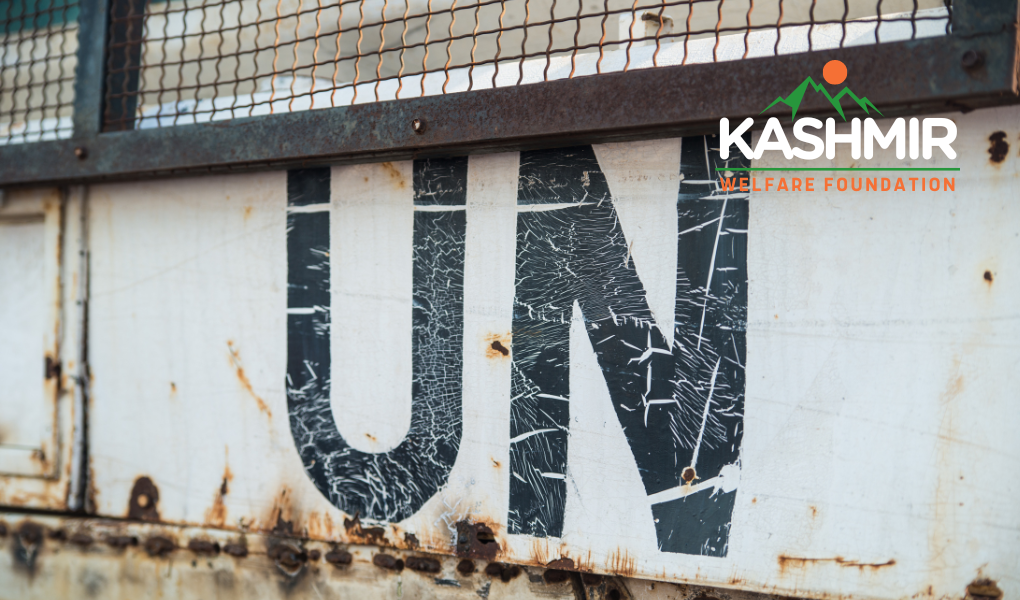
Introduction to the International Day of UN Peacekeepers
The International Day of United Nations Peacekeepers, observed annually on May 29th, is a solemn occasion dedicated to honoring the brave men and women who dedicate their lives to maintaining peace and security in some of the most volatile regions of the world. This day serves as an opportunity to recognise the invaluable contributions of UN peacekeepers who work under challenging and often dangerous conditions to foster stability and prevent the escalation of conflicts. Their presence in conflict zones not only helps to protect civilians but also facilitates the delivery of humanitarian aid, supports the rebuilding of societies, and promotes the establishment of political processes aimed at achieving long-term peace.
In addition to celebrating the achievements of these courageous individuals, the International Day of UN Peacekeepers is also a time to remember and pay tribute to those who have made the ultimate sacrifice in the line of duty. Since the inception of UN peacekeeping missions in 1948, over 4,000 peacekeepers have lost their lives while serving under the UN flag. Their dedication and commitment to the cause of global peace are a testament to the enduring spirit of humanity and the pursuit of a better world for all.
This day also provides an opportunity to reflect on the broader significance of peacekeeping missions and their vital role in promoting international stability. Peacekeepers act as a buffer between warring parties, help to enforce ceasefires, and create conditions conducive to the peaceful resolution of conflicts. Their work is essential in preventing the resurgence of violence and in laying the groundwork for sustainable development and reconciliation.
As we observe the International Day of UN Peacekeepers, it is crucial to acknowledge the ongoing challenges faced by peacekeeping missions and the need for continued support from the international community. By doing so, we can ensure that these missions remain effective and capable of adapting to the evolving nature of global conflicts, ultimately contributing to a more peaceful and united world.
History and Significance of UN Peacekeeping Missions
The inception of United Nations peacekeeping missions dates back to 1948, with the deployment of the United Nations Truce Supervision Organisation (UNTSO) in the Middle East. This pioneering initiative marked the beginning of what would become a cornerstone of international efforts to maintain global peace and security. Over the decades, UN peacekeeping has evolved significantly, adapting to the complex and changing nature of conflict and post-conflict environments.
Initially, peacekeeping missions had limited mandates, primarily focusing on monitoring ceasefires and facilitating the peaceful resolution of disputes. However, as conflicts grew more intricate, the role of peacekeeping expanded. Modern peacekeeping missions now encompass a wide array of objectives, including supporting political processes, protecting civilians, assisting in the disarmament, demobilisation, and reintegration of ex-combatants, and promoting human rights and the rule of law. These missions are crucial in fostering sustainable peace in societies emerging from conflict.
The significance of UN peacekeeping missions is underscored by their contributions to global stability. They provide a neutral presence that can help de-escalate tensions, create conditions for peace negotiations, and support the implementation of peace agreements. For instance, the United Nations Interim Force in Lebanon (UNIFIL) has played a pivotal role in maintaining peace along the Lebanon-Israel border since 1978, despite numerous challenges and periodic escalations.
Another notable example is the United Nations Mission in Liberia (UNMIL), which was instrumental in stabilising the country after years of civil war. The mission supported the disarmament of combatants, facilitated democratic elections, and helped rebuild governmental institutions. While the successes of these missions are commendable, it is also essential to acknowledge the challenges they face, such as limited resources, complex political dynamics, and the need for robust international support.
UN peacekeeping missions remain vital in the collective quest for global peace and unity. Their ability to adapt and respond to evolving conflicts highlights their indispensable role in the international community’s efforts to promote enduring peace and security.
Spotlight on Kashmir: A Region in Need of Peace
The conflict in Kashmir is a complex and longstanding territorial dispute between India and Pakistan, both of which claim the region in full but control only parts of it. The roots of this conflict trace back to the partition of British India in 1947, which led to the creation of the independent dominions of India and Pakistan. The princely state of Jammu and Kashmir, with its predominantly Muslim population but Hindu ruler, became a focal point of contention, eventually resulting in the First Indo-Pakistani War.
Subsequent decades have seen multiple wars, skirmishes, and uprisings, further entrenching the divide. The region has witnessed significant key events, including the 1965 and 1971 wars, the insurgency that began in the late 1980s, and the Kargil conflict in 1999. More recently, the abrogation of Article 370 by the Indian government in August 2019, which granted special autonomy to Jammu and Kashmir, has exacerbated tensions, leading to widespread unrest and international concern.
The human impact of the Kashmir conflict is profound and multifaceted. The local population endures continuous hardships, including violence, displacement, and economic instability. Daily life is marred by curfews, communication blackouts, and a pervasive sense of insecurity. Moreover, the conflict has resulted in significant psychological trauma, particularly among children and young adults, who have grown up in an environment of uncertainty and fear.
Achieving a peaceful resolution in Kashmir presents numerous challenges. The deep-seated mistrust and hostilities between India and Pakistan, coupled with the aspirations of various Kashmiri groups, complicate the peace process. Efforts by international organisations, including the United Nations, to mediate have often been met with resistance or limited success.
In this context, the role of United Nations peacekeepers becomes crucial. UN peacekeepers can play a pivotal role in conflict zones like Kashmir by monitoring ceasefires, facilitating dialogue, and providing humanitarian assistance. Their presence can help create an environment conducive to peace negotiations, build trust among conflicting parties, and ensure the protection of human rights. However, for their impact to be significant, there must be a concerted effort and commitment from all stakeholders to support and engage with the peacekeeping mission.
The Role of UN Peacekeepers in Promoting Global Peace and Unity
UN peacekeepers play a crucial role in promoting global peace and unity, extending their impact far beyond mere conflict resolution. Their contributions are multifaceted, encompassing a wide range of activities that are essential for rebuilding societies torn apart by conflict. One of their primary roles is supporting the rule of law. By assisting in the establishment of legal frameworks and ensuring their enforcement, peacekeepers help create a stable environment where justice prevails. This, in turn, lays the foundation for long-term peace and sustainable development.
In addition to supporting the rule of law, UN peacekeepers facilitate humanitarian aid, ensuring that essential resources reach those in need during and after conflicts. Their presence often allows humanitarian organisations to operate more effectively, delivering food, medical supplies, and other critical aid to vulnerable populations. This support is vital for the immediate survival and long-term recovery of affected communities.
Another significant aspect of peacekeeping missions is fostering social cohesion. Peacekeepers work tirelessly to bridge divides within communities, promoting dialogue and cooperation among different ethnic, religious, and political groups. By encouraging cross-cultural cooperation, they help build a sense of international solidarity, which is essential for lasting peace. These efforts often involve organising community-building activities, supporting local governance structures, and facilitating education and awareness programs aimed at reconciliation and unity.
Furthermore, UN peacekeeping missions represent a collaborative effort of nations coming together for a common cause. The presence of peacekeepers from diverse backgrounds embodies the spirit of international solidarity and showcases the collective commitment to a peaceful and united world. This cross-cultural cooperation not only strengthens the effectiveness of peacekeeping missions but also sends a powerful message about the importance of global unity.
Ultimately, the role of UN peacekeepers in promoting global peace and unity is indispensable. Through their varied efforts in rebuilding societies, supporting the rule of law, facilitating humanitarian aid, and fostering social cohesion, they make significant contributions to creating a more peaceful and united world.
Challenges Faced by UN Peacekeepers
UN peacekeepers are often deployed in regions fraught with political complexities, resource constraints, and significant security threats. These challenges not only hinder their mission but also put their lives at risk. Political intricacies, especially in conflict zones like Kashmir, can complicate their efforts to maintain neutrality and facilitate peace. Peacekeepers must navigate local power dynamics, historical grievances, and ongoing hostilities, all while maintaining impartiality to foster trust among conflicting parties.
Resource constraints further exacerbate the situation. Limited funding and logistical support can leave peacekeepers without essential supplies, equipment, and reinforcements. This scarcity can impede their ability to effectively monitor ceasefires, protect civilians, and provide humanitarian aid. Moreover, the lack of adequate infrastructure and medical facilities in conflict zones can exacerbate the physical and psychological toll on these individuals.
The security threats faced by UN peacekeepers are multifaceted. They often operate in volatile environments where they are vulnerable to attacks from insurgent groups, militias, and sometimes even state actors. These threats not only endanger their lives but also undermine the overall mission. The psychological impact of operating under constant threat cannot be overstated. Peacekeepers frequently experience stress, trauma, and other mental health issues, necessitating comprehensive psychological support and counseling services.
International support is crucial for the success of UN peacekeeping missions. Effective collaboration among member states ensures the provision of necessary resources, strategic guidance, and political backing. Comprehensive training programs are essential to prepare peacekeepers for the diverse challenges they will face. This training should encompass not only tactical and operational skills but also cultural sensitivity, conflict resolution techniques, and stress management.
Specific instances, such as the challenges faced by UN peacekeepers in the Democratic Republic of Congo, highlight the resilience and dedication of these individuals. Despite being outnumbered and outgunned, they have managed to protect civilians and facilitate peace processes through sheer determination and strategic acumen. These examples underscore the importance of equipping peacekeepers with the resources and support they need to succeed in their noble mission.
The Importance of Supporting Peacekeeping Efforts
Supporting UN peacekeeping efforts is a critical obligation for the international community, as these missions play a pivotal role in maintaining global peace and security. Financial contributions, political backing, and public awareness are essential components that underpin the success of these operations. By providing adequate resources, nations can ensure that peacekeepers are well-equipped and adequately trained to handle the complex environments they are deployed to.
Financial contributions are fundamental to the sustainability of peacekeeping missions. Without sufficient funding, operations can suffer from logistical constraints, insufficient personnel, and inadequate equipment, which can compromise the safety and effectiveness of peacekeepers. Countries contributing to the UN peacekeeping budget help ensure that missions can operate smoothly and respond promptly to emerging crises. For instance, the UN mission in Liberia (UNMIL) received robust financial backing, which was instrumental in stabilising the country post-civil war and facilitating a peaceful transition of power.
Political backing is equally crucial, as it provides the necessary legitimacy and support for peacekeeping missions. When member states demonstrate a unified stance, it strengthens the mandate of peacekeepers and puts pressure on conflicting parties to engage in dialogue and seek peaceful resolutions. The UN peacekeeping mission in Sierra Leone (UNAMSIL) benefitted significantly from strong international political support, contributing to the successful disarmament and reintegration of combatants, which ultimately led to the end of the civil war and the establishment of a stable government.
Public awareness and advocacy are vital in garnering support for peacekeeping efforts. When the public is informed about the importance and impact of these missions, it fosters a global culture of peace and solidarity. Awareness campaigns can also drive political leaders to prioritise peacekeeping in their foreign policy agendas. For example, the successful peacekeeping operation in Timor-Leste (UNTAET) was bolstered by widespread public support and awareness, helping the nation achieve independence and stability.
Strengthened support for UN peacekeeping efforts not only enhances the effectiveness of these missions but also contributes to more sustainable peace outcomes. By investing in peace, the international community can help prevent conflicts, protect vulnerable populations, and promote long-term stability and development. The success stories of Liberia, Sierra Leone, and Timor-Leste demonstrate the profound impact of collective support and commitment to peacekeeping initiatives.
How to Contribute: Donating to the Kashmir Welfare Foundation
The Kashmir Welfare Foundation (KWF) is a dedicated non-profit organisation committed to addressing the multifaceted challenges faced by the people of Kashmir. The region, long marred by conflict, has an urgent need for humanitarian assistance, and KWF strives to bridge this gap through targeted initiatives. The foundation’s mission encompasses a broad spectrum of services aimed at improving the quality of life for Kashmiri residents. These services include medical aid, educational support, and community development projects.
Donations to the Kashmir Welfare Foundation are meticulously allocated to ensure maximum impact. Medical aid is a cornerstone of KWF’s efforts, providing essential healthcare services to those who have limited or no access to medical facilities. This includes the provision of medical supplies, funding for health clinics, and support for emergency medical interventions. Education is another critical focus area, with funds being used to build and maintain schools, provide scholarships, and supply educational materials to students. KWF’s community development projects address broader societal needs, such as clean water initiatives, vocational training programs, and sustainable agriculture projects.
Contributing to the Kashmir Welfare Foundation can be done in several ways. Financial donations are the most direct method of support, allowing the foundation to allocate resources where they are most needed. However, contributions can also take the form of volunteering time, donating supplies, or spreading awareness about the foundation’s work. Every contribution, whether large or small, plays a significant role in fostering a more stable and prosperous Kashmir.
By supporting the Kashmir Welfare Foundation, donors have the unique opportunity to make a tangible difference in the lives of those affected by the ongoing conflict. Your support not only helps meet immediate needs but also contributes to the long-term development and stability of the region. Together, we can work towards a future where peace and unity prevail in Kashmir.
Conclusion: A Call for Global Solidarity and Action
The International Day of UN Peacekeepers serves as a poignant reminder of the essential role that peacekeeping missions play in maintaining global stability and security. Throughout this blog post, we have explored the multifaceted challenges faced by UN Peacekeepers and the indispensable contributions they make toward fostering peace in volatile regions like Kashmir. The dedication and sacrifice of these individuals underscore the urgent need for continued support and recognition of their efforts.
Global peace and unity are inextricably linked, requiring concerted efforts from all nations and individuals. The complexities of modern conflict demand a collaborative approach, where each person acknowledges their role in promoting and sustaining peace. By supporting peacekeeping missions and initiatives, we contribute to a broader framework of global harmony.
In particular, the situation in Kashmir highlights the critical need for ongoing intervention and support. Organisations such as the Kashmir Welfare Foundation play a pivotal role in addressing the humanitarian needs of the region. By backing such initiatives, we can directly impact the lives of those affected by conflict, paving the way for long-term stability and peace.
As we honor the International Day of UN Peacekeepers, let us reflect on our collective responsibility to uphold the principles of peace and unity. Each of us has the power to make a difference, whether through advocacy, donation, or active participation in peace initiatives. Together, we can build a more peaceful world, where the values of compassion, solidarity, and cooperation prevail.
We urge you to take action today. Support organisations like the Kashmir Welfare Foundation, spread awareness about the importance of peacekeeping missions, and commit to fostering unity in your community. By doing so, we honor the legacy of UN Peacekeepers and contribute to a future where peace and unity are not just ideals, but realities.





